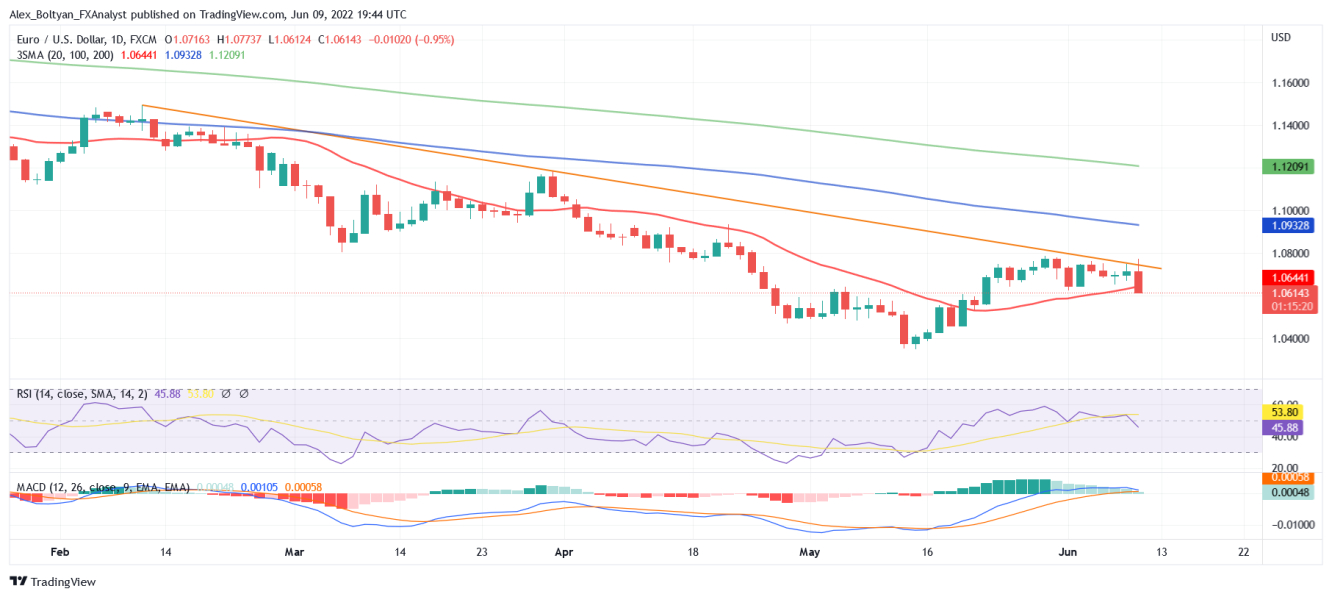The EUR/USD pair lost ground on Thursday, following the European Central Bank monetary policy announcement. After hitting a nine-day high of 1.0773, the EUR/USD turned lower and dropped to its lowest over the last two weeks at 1.0615 as investors assessed the ECB outcome.
The ECB announced the end of its monetary stimulus program at the beginning of July and hinted at a 25 basis points rate hike for next month. While many were expecting a nod to a more aggressive 50 bps increase move, the bank also painted a grim economic outlook, triggering risk aversion across the board.
President Christine Lagarde suggested that the economic outlook has worsened, as near-term activity is expected to be negatively affected by higher energy costs. In contrast, price increases have spread across other sectors, and risks remain tilted to the upside.
During Lagarde’s press conference, the euro came under pressure even as German 10-Year yields hit fresh multi-year highs at 1.47%. Despite United States 10-Year yields staying above 3.0%, the US 10 Year vs. Germany 10 Year spread fell to its lowest level since July 2021 of 160 bps but provided no relief to the shared currency.
On Friday, the US will release May’s Consumer Price Index, which is expected to show that prices grew at an annualized pace of 8.3%, supporting the view that the Fed is headed to more rate increases.
Technical View
According to the daily chart, EUR/USD's short-term outlook has turned slightly bearish. The price has dipped below the 20-day SMA, the RSI has crossed its midline upside-down, and the MACD continues to point at dwindling buying interest.
Still, the pair has managed to hold above the 1.0600 level. A break below could increase the bearish pressure. Following supports are seen at 1.0532, May 20 low, 1.0500 and the previous swing low at 1.0470. On the other hand, the EUR/USD needs to regain the 1.0700 level to improve the short-term perspective, with 1.0770 and 1.0850 as next bullish targets.


